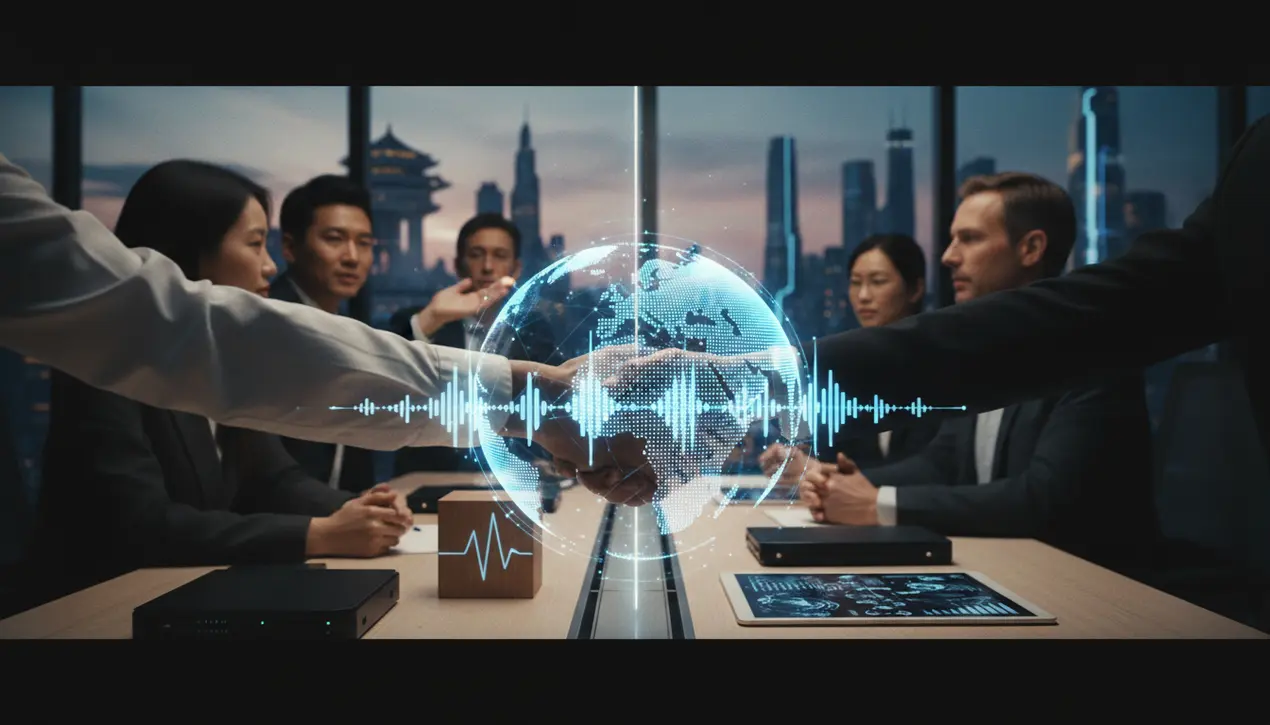
AInlp & speechSpeech Synthesis
Tencent Cloud Partners with Cartesia on AI Voice Technology
DA
Daniel Reed
10 hours ago7 min read
In a notable development within the highly scrutinized AI sector, Tencent Cloud, the cloud computing arm of Chinese tech behemoth Tencent Holdings, has forged a strategic partnership with San Francisco-based startup Cartesia to co-develop next-generation voice artificial intelligence applications. This collaboration, announced in a Tuesday statement, represents a rare instance of Sino-American cooperation in the sensitive frontier technology of AI voice models, an area increasingly viewed through the lens of national security and technological sovereignty.Cartesia, which recently secured a substantial US$100 million funding round specifically for its advanced text-to-speech model, Sonic 3, brings to the table a highly specialized, cutting-edge audio generation capability. Tencent Cloud contributes its massive, enterprise-grade global real-time communication infrastructure, a network honed through services like WeChat and its international gaming platforms, which demands ultra-low latency and high reliability.This synergy is not merely a technical handshake; it's a profound convergence of compute scale and algorithmic innovation. The partnership raises immediate questions about the evolving landscape of AI development, where geopolitical tensions often create digital silos, yet the inherent global nature of foundational research and market demands fosters these unexpected alliances.From a technical perspective, the integration of Sonic 3 into Tencent's ecosystem could revolutionize everything from cloud-based customer service avatars and real-time translation services to immersive gaming experiences and interactive educational tools, pushing the boundaries of what's possible in human-computer interaction. However, the path is fraught with complexity.The data privacy implications are immense, as voice data is considered among the most sensitive forms of biometric information, and the regulatory frameworks governing its transfer and processing between the US and China are a labyrinth of export controls and data localization laws like China's Personal Information Protection Law (PIPL). Furthermore, the underlying architecture of large language models and their voice synthesis counterparts involves intricate layers of potential bias, safety alignment, and ethical deployment—challenges that are magnified when development spans different cultural and legal contexts.Experts in AI governance are watching closely, as this partnership could serve as a critical test case for whether cross-border collaboration on advanced AI can be managed responsibly or if it will inevitably succumb to the centrifugal forces of techno-nationalism. The success of this venture will hinge not just on the prowess of Sonic 3's waveforms or the robustness of Tencent's servers, but on navigating the intricate web of international policy, building transparent data handling protocols, and establishing verifiable trust mechanisms. This is more than a business deal; it's a high-stakes experiment in whether the global AI research community can maintain a thread of collaboration even as the world's technological superpowers chart increasingly divergent courses.
#Tencent Cloud
#Cartesia
#AI speech
#partnership
#US-China tech
#Sonic 3
#text-to-speech
#featured
Stay Informed. Act Smarter.
Get weekly highlights, major headlines, and expert insights — then put your knowledge to work in our live prediction markets.
Comments
Loading comments...
© 2025 Outpoll Service LTD. All rights reserved.